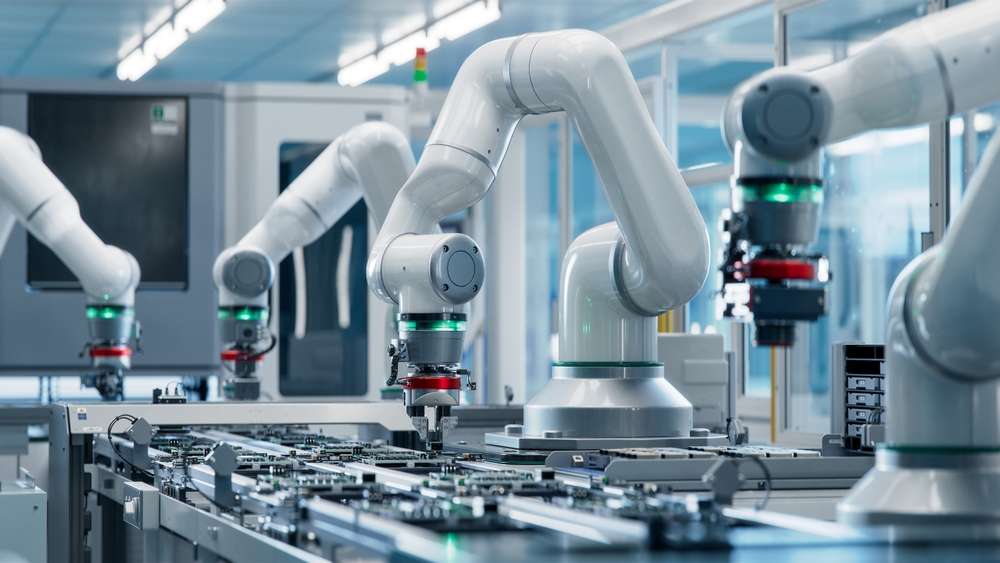Micro-Modular Manufacturing: Reshaping Industrial Production
Revolutionizing production landscapes, micro-modular manufacturing emerges as a game-changing approach in industrial operations. This innovative methodology combines the flexibility of modular design with the efficiency of micro-scale production, offering businesses unprecedented adaptability and resource optimization. As industries grapple with evolving market demands and sustainability concerns, micro-modular manufacturing presents a compelling solution to streamline processes and enhance competitiveness.

Historical Context and Industry Developments
The roots of micro-modular manufacturing can be traced back to the mid-20th century when modular design principles first gained traction in manufacturing. However, it wasn’t until recent advancements in automation, materials science, and digital technologies that the full potential of this approach could be realized. The convergence of these technologies has enabled the creation of compact, highly efficient production modules that can operate independently or as part of a larger system.
In the past decade, several industries have begun exploring and implementing micro-modular manufacturing concepts. The automotive sector, for instance, has experimented with modular assembly lines that can be quickly reconfigured to produce different vehicle models. Similarly, the pharmaceutical industry has adopted modular cleanroom technologies to enhance flexibility in drug manufacturing processes.
Key Principles and Benefits
At its core, micro-modular manufacturing is built on several key principles:
Flexibility: Production modules can be easily rearranged or repurposed to accommodate changing product requirements or market demands.
Scalability: Manufacturing capacity can be incrementally increased or decreased by adding or removing modules, allowing for precise alignment with production needs.
Portability: Compact, self-contained modules can be relocated to different sites, enabling distributed manufacturing and reducing transportation costs.
Resource Efficiency: Smaller, more focused production units can optimize resource utilization, minimizing waste and energy consumption.
The benefits of adopting micro-modular manufacturing are numerous. Businesses can achieve faster time-to-market for new products, as production lines can be quickly reconfigured. Capital expenditure risk is reduced, as investments can be made incrementally rather than in large, inflexible facilities. Additionally, the approach enables more localized production, reducing supply chain vulnerabilities and supporting sustainability initiatives.
Implementation Challenges and Considerations
While the potential of micro-modular manufacturing is significant, its implementation comes with several challenges. One of the primary hurdles is the initial cost of transitioning from traditional manufacturing setups to modular systems. This transition often requires substantial investment in new equipment, training, and process redesign.
Another challenge lies in ensuring seamless integration between different modules and maintaining overall production efficiency. Standardization of interfaces and protocols becomes crucial to enable smooth interaction between various components of the modular system.
Moreover, the shift to micro-modular manufacturing necessitates a change in mindset and organizational culture. Traditional manufacturing practices often prioritize large-scale efficiencies, whereas this new approach requires embracing flexibility and adaptability as core values.
Industry Applications and Case Studies
Several industries have begun to reap the benefits of micro-modular manufacturing. In the electronics sector, companies like Foxconn have implemented modular production lines that can be quickly reconfigured to produce different types of devices. This flexibility has allowed them to respond more effectively to rapidly changing consumer electronics markets.
In the pharmaceutical industry, Pfizer has adopted modular manufacturing units for some of its drug production processes. These portable, self-contained units can be deployed to different locations, enabling more agile and localized production of critical medications.
The food and beverage industry has also seen innovative applications of micro-modular manufacturing. Companies like Plenty have developed vertical farming modules that can be stacked and configured to maximize production in limited urban spaces, revolutionizing local food production.
Future Trends and Implications
As technology continues to advance, the potential applications of micro-modular manufacturing are expected to expand. The integration of artificial intelligence and machine learning could further enhance the adaptability and efficiency of modular production systems. Additionally, the rise of advanced materials and 3D printing technologies may enable even more compact and versatile manufacturing modules.
The widespread adoption of micro-modular manufacturing could have far-reaching implications for global supply chains and industrial landscapes. It may lead to more distributed manufacturing networks, reducing the reliance on large, centralized factories and enabling more localized production closer to end consumers.
Strategic Insights for Business Leaders
• Assess your current manufacturing processes to identify areas that could benefit from modularization.
• Start small by implementing micro-modular concepts in pilot projects before scaling up.
• Invest in workforce training to develop the skills necessary for operating and managing modular production systems.
• Collaborate with technology providers and industry partners to develop standardized interfaces for modular manufacturing components.
• Consider the potential for micro-modular manufacturing to enable new business models, such as mobile production units or on-demand manufacturing services.
In conclusion, micro-modular manufacturing represents a transformative approach to industrial production, offering unprecedented flexibility, efficiency, and adaptability. As businesses navigate an increasingly complex and volatile market landscape, the ability to rapidly reconfigure and optimize production processes becomes a critical competitive advantage. While challenges remain in implementation, the potential benefits of micro-modular manufacturing make it a compelling strategy for forward-thinking companies looking to stay ahead in the ever-evolving industrial sector.





